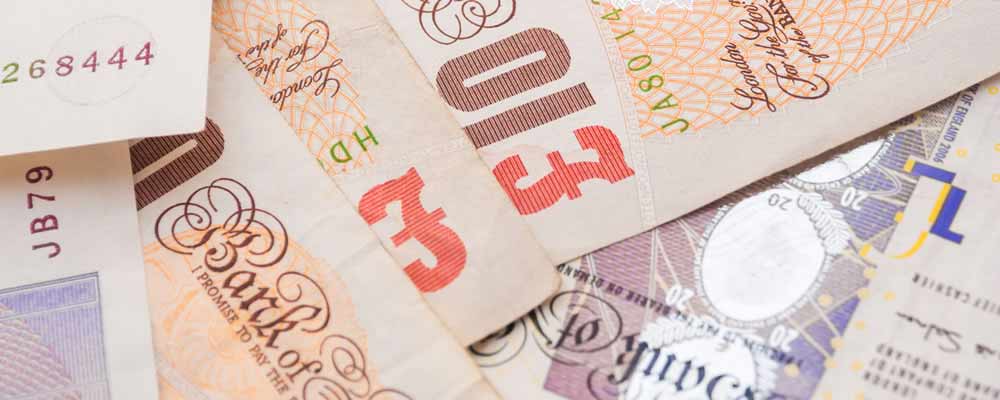While the latest German Services PMI was revised lower, the Pound to Euro exchange rate was encouraged higher by a bullish improvement in the UK measure, with worries over the negative Brexit impact on the UK economy diminishing. The GBP/EUR currency pair was threatening to advance beyond the key resistance level of 1.20 and struck a three-week high during Monday’s European session. Sterling demand remained fairly encouraging on Tuesday, although the currency failed to push higher against the Euro.
- Improved Eurozone investor confidence failed to shore up Euro – Single currency dampened by weaker German Services PMI
- UK Services PMI rebounded strongly in August – GBP EUR exchange rate surged in response to suggestion of more limited post-referendum slowdown
- Profit taking hampered Pound gains – Sterling struggled to maintain bullish outlook despite positive domestic data
- ECB policy meeting forecast to provoke GBP EUR volatility – Dovish commentary could weigh heavily on Euro demand
Disappointing Retail Sales Dented GBP EUR Exchange Rate
Some of the Pound’s confidence eased in response to weaker-than-expected BRC Like-For-Like Sales data, which showed a contraction in consumer spending in August. This limited the strength of the GBP EUR exchange rate, which was trending narrowly at 1.1938 on Tuesday morning.
(Previously updated at 16:59 on 05/09/16)
Ahead of Thursday’s European Central Bank (ECB) policy meeting the GBP EUR exchange rate is expected to make further gains.
Euro (EUR) Dented by Disappointing German Service Sector Data
Despite the Eurozone Sentix Investor Confidence Index strengthening further than forecast in September the appeal of the Euro (EUR) remained limited on Monday. While sentiment amongst investors was shown to have risen from 4.2 to 5.6 this was not enough to overshadow the day’s concerning German data. The finalised German Services PMI for August was unexpectedly revised lower from 53.3 to 51.7, a sharp drop that did not offer markets any encouragement. Even though the measure remained firmly in growth territory this suggested that the Eurozone’s powerhouse economy is not in as robust health as might be hoped.
The relative weakness of the US Dollar (USD) offered some measure of support to the single currency, though, with Friday’s softer labour data having dented the likelihood of an imminent Federal Reserve rate hike. With US markets also closed for Labour Day there was little to prevent the Euro benefitting from the sluggishness of the ‘Greenback’, although the general improvement in risk appetite limited this somewhat.
Strong UK Services PMI Boosted Pound (GBP) Exchange Rates
Confidence in the Pound (GBP) was substantially boosted by a better-than-expected UK Services PMI, which climbed from 47.4 to 52.9 in the single strongest monthly recovery in the survey’s history. This seemed to point towards a strong recovery within the service sector, something particularly crucial to the health of the domestic economy as the sector accounts for more than three quarters of economic activity. Investors were greatly encouraged by this positive showing, which many interpreted as further evidence that the country is rapidly shaking off the initial negative impact of the Brexit vote.
However, the Pound to Euro (GBP EUR) exchange rate was unable to hold onto all of the strong gains made in the immediate aftermath of the data release. In part this was due to renewed profit taking, as investors capitalised on the recent gains of the Pound. Some economists were also keen to reiterate the limits of the PMI surveys, as they are based primarily on sentiment and lack the hardness of other economic indicators. The relative volatility of the measures equally limited the gains of Sterling, as the sustainability of the post-referendum rebound remains debateable.
GBP EUR Exchange Rate Forecast: German Data in Focus Ahead of ECB Meeting
Investors are expected to pay close attention to the week’s German data, hoping for a solid gauge on the outlook of the Eurozone’s powerhouse economy. Further signs of weakness would suggest greater caution towards the Euro, with other member states unlikely to pick up the slack of any German slowdown. If the latest Factory Orders, Construction and Retail PMIs suggest a more resilient domestic economy, though, the GBP/EUR exchange rate is expected to come under fresh pressure.
Even so, the appeal of the single currency is likely to be increasingly muted ahead of the European Central Bank’s (ECB) September policy meeting. Given the recent weakness of Eurozone data and disappointing inflation results there is speculation that the ECB could be prompted to enact further monetary loosening. As researchers at BBH noted:
‘The economy does not have much forward momentum. Price pressures remain disappointingly subdued. Also, it is safe to assume that despite Draghi’s pleas, the reform drive has stalled, or worse. Nor is there much prospect for fiscal stimulus.’
Should the ECB act now or President Mario Draghi indicate the possibility of more easing before the end of the year then the Euro can be expected to trend lower. Greater dovishness would offer support to the GBP EUR exchange rate, assuming that investors do not dismiss any potential signals as being little more than rhetoric.



